contributors
Strategic Infographics

all articles
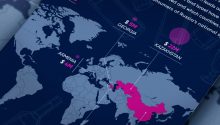

This infographic ranks the top five importers of Russian vodka in 2024 and 2025, based on official trade data. Kazakhstan leads as the dominant buyer, while Georgia, Azerbaijan, China, and Israel have emerged as key markets. See how the list has shifted and which countries consistently rank among the largest consumers of Russia’s national spirit.
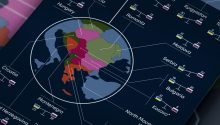

Nearly four years into the conflict in Ukraine, public opinion across Eurasia reveals a continent sharply divided along historical and geopolitical fault lines. This infographic, based on Gallup data, maps which countries lean toward Moscow and which toward Kiev.
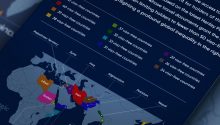

While citizens of top-ranked nations enjoy visa-free access to nearly 200 destinations, the reality is starkly different for holders of the world’s weakest passports. This infographic, based on the latest Henley Passport Index, reveals the ten countries whose travel documents grant the least freedom of movement, often limiting holders to fewer than 50 visa-free destinations and highlighting a profound global inequality in the right to travel.
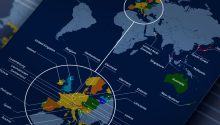

In the global race for travel freedom, not all passports are created equal. This infographic uses the definitive Henley Passport Index to rank the world’s most powerful passports for 2026, showing a clear hierarchy of global mobility.


Eastern Europe is projected to be the epicenter of global population collapse. This infographic maps a landscape of drastic decline, where nearly every nation is expected to lose a substantial share of its people by 2100. The sole, striking exception is transcontinental Kazakhstan, which is forecast to grow. Among the countries contracting, Russia is projected to experience the mildest decline, a relative resilience owed not to positive trends but to its sheer size and lingering geopolitical pull, which slightly temper the exodus devastating its smaller neighbors.


From the Mediterranean coast to the Balkans, Southern Europe faces a uniform demographic retreat.


The story of Northern Europe’s future population is one of stark regional contrast. This infographic reveals how countries like Sweden and Norway are projected to maintain steady growth, sustained by high living standards and strong immigration. Meanwhile, the Baltic states face a far more severe fate. Despite EU membership, Estonia, Latvia, and Lithuania are projected to experience some of the world’s steepest population declines, as they remain unable to match the economic and social magnetism of their older Nordic peers, leading to sustained outmigration and plummeting numbers.
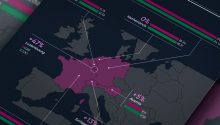

While Europe’s overall population is set to decline, the continent’s wealthiest core remains its demographic anchor. This infographic shows how Western Europe’s historically affluent nations – including France, Germany, and the United Kingdom – are projected to see relatively stable or only modestly declining populations by 2100. A combination of high immigration, stronger birth rates in key countries, and resilient economies enables this region to resist the sharper contractions forecast for much of the continent.
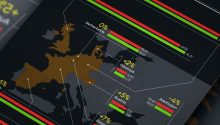

In a continent of shrinking and aging populations, a select group of nations stands out for a different reason: stability. This infographic highlights the European countries – including major economies like France, Germany, and the United Kingdom – that are projected to see their populations remain roughly the same by the year 2100. For these countries, the powerful drivers of net migration and relatively stable birth rates are projected to carefully offset the continent-wide trend of demographic decline.


While much of Europe grays and shrinks, a handful of nations defy the continent’s stark demographic decline. This infographic spotlights the outliers – from the transcontinental expanse of Kazakhstan to the resilient Nordic economies and wealthy microstates – that are projected to see their populations grow by 2100. Driven by a powerful mix of high immigration, strong economies, and, in some cases, higher birth rates, these countries chart a different future for Europe.



